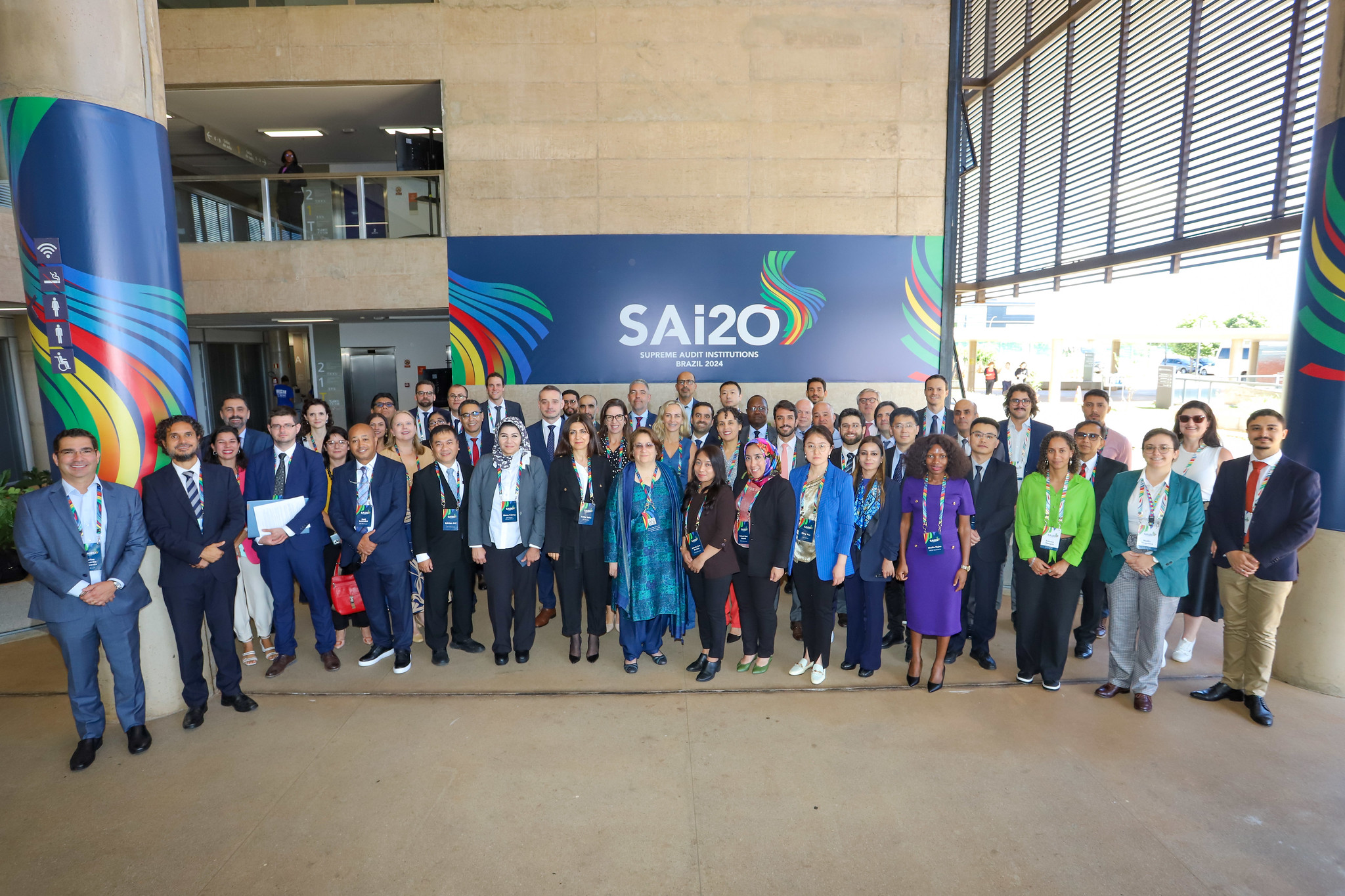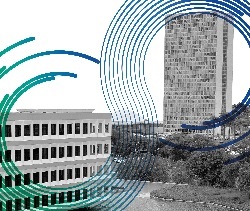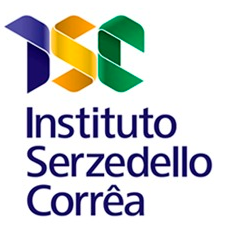Tribunal de Contas da União
SAI20 Meeting begins with discussions on sustainable development

The Brazilian Federal Court of Accounts (TCU) kicked off the SAI20 Senior Officials Meeting on April 16th. This technical gathering unites the group of Supreme Audit Institutions (SAIs) from G20 member countries and stands as a key preparatory measure for the forthcoming Annual SAI20 Summit, slated for June in Belém (PA). Minister Jorge Oliveira represented TCU at the opening ceremony. At the conclusion of the meeting, a draft joint declaration (Communiqué) containing recommendations to G20 member leaders on priority issues for governments will be prepared. The final version of the statement will be approved at the SAI20 Summit.
Among the priorities are the fight against hunger and poverty, climate financing, and energy transition. During the opening session, Minister Jorge Oliveira of the TCU welcomed the participants and emphasized the role of SAIs in addressing global challenges. "SAI20 focuses on formulating concrete policy recommendations, messages that effectively contribute to solving the global problems we face. It's a unique opportunity for in-depth discussions and broad participation of SAIs on relevant and mutually interesting topics," he stated.
The topics under discussion at the SAI20 meeting align with the group's agenda and the priorities of the Brazilian government during its presidency of the bloc in 2024. The gathering brings together approximately 200 delegates from 13 countries and ends on April 17th. Brazilian authorities and representatives from institutions such as the Brazilian Development Bank (BNDES) and the United Nations Development Programme (UNDP) are also participating.
Regarding the climate crisis, the meeting will address innovative financing mechanisms, strategies to mobilize resources for climate-resilient infrastructure, as well as renewable energy projects and adaptation measures. "Climate financing aims to empower nations to adopt green technologies and promote these practices. SAI20 needs to access financing mechanisms and decision-making processes that involve this broad spectrum of climate financing, ensuring an effective response to affected communities," said Parveen Mehta, Deputy Comptroller & Auditor General of SAI India, during the opening ceremony.
Sybrand Struwig, the head of the audit office of SAI South African, emphasized the integration among the chosen topics for discussion. "Overcoming poverty is not an act of charity; it is an act of justice. In today's world, protecting fundamental human rights is a complex issue. Matters related to hunger and poverty are becoming integrated with those related to climate, financing, and energy transitions. I propose that we adopt a stance of conversing with one another, replacing judgments with empathy, lectures with questions, and edicts with dialogues," he said.
A thematic panel discussed the strengthening of sustainable development
The first panel of the day was moderated by the Deputy Secretary-General for External Control of TCU, Junnius Arifa, and focused on "Strengthening Sustainable Development: Climate Financing and Energy Transitions, Fighting against Hunger and Poverty." Arifa opened the discussion with a reflection on the purpose of the meeting. "The climate crisis is real and happening right now across the planet. We are here because, as SAIs, we can contribute to reducing poverty and the consequences of the climate crisis. We need to ensure transparency and efficiency to develop policies that lead to the identification of solutions and the most effective ways to implement these public policies and initiatives successfully," he said.
The guest speakers included Sandra Guzman, coordinator of the Climate Finance Group of Latin America and the Caribbean (GFLAC); Joísa Saraiva, Director of the Infrastructure Regulation Center at the Getulio Vargas Foundation (FGV CERI); José Nabor, Executive Secretary of the National Council for the Evaluation of Social Development Policy in Mexico (CONEVAL); Alida Gutiérrez, Coordinator at CONEVAL; and Walter Baère, Legal Director of BNDES.
Sandra Guzman discussed the importance of climate financing in accelerating energy transitions. She highlighted the main challenges as the unequal distribution of resources and the lack of universal definition of what constitutes climate financing. "Although climate financing saw an increase from 2021 to 2022, its effectiveness in utilization remains uncertain. Responsible utilization is imperative due to the unequal allocation of resources. The bulk of funding is directed towards the Americas and Europe, leaving numerous vulnerable countries unable to access financial assistance," she explained. The goals of financing include reducing emissions, expanding greenhouse gas sinks, and enhancing the resilience of human and ecological systems to the negative impacts of climate change.
Joísa Saraiva mentioned the most suitable types and approaches for auditing the effectiveness of climate financing and energy transitions. She also addressed the collaborative structures that could be established to share best practices, data, and methodologies among SAIs and among countries. Saraiva pointed out equity, resilience, and social vulnerability as critical challenges for successful energy transitions, especially in emerging economies.
José Nabor and Alida Gutiérrez provided an overview of the dimensions of poverty in Mexico, presenting results at both the state and national levels. Despite being one of the largest exporters of manufactured goods to the United States, 36% of the population still lives in poverty.
Director Walter Baère presented data from BNDES, the leading bank globally in terms of investment in renewable energies. According to him, between 2000 and 2023, BNDES approved $28.3 billion for clean and renewable energy. "There is a tangible development opportunity. Brazil currently has a renewable energy matrix of 83%, which is much higher than other countries, and we are making a tremendous effort to enhance our capacity," he concluded.
Check out the complete schedule here.
Some information about SAI20
SAI20 is the engagement group of the Supreme Audit Institutions (SAIs) from G20 member countries. SAI20 is chaired by the SAI of the country leading the G20, currently TCU, SAI Brazil. The group plays an important role in overseeing the implementation of G20 commitments while also providing support for the achievement of the Sustainable Development Goals (SDGs) established by the United Nations (UN).
Follow the group's updates on the official Instagram and X. You can visit the SAI20 website to access the group's history, photo gallery, and official documents.


